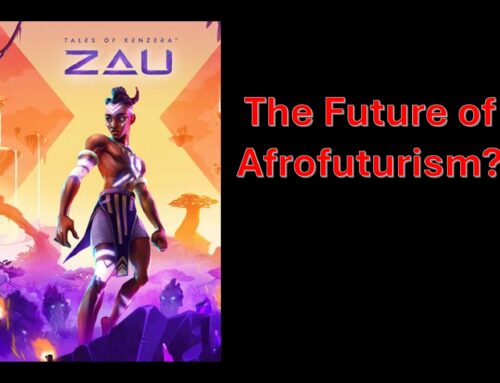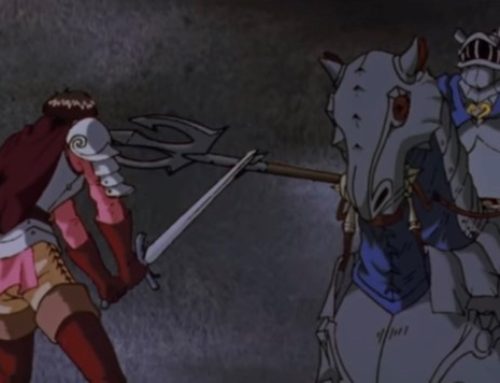Continuing with the subject of sources of magic for a magic system, I want to turn now to the second system people usually think of when they imagine ways to make your characters into magic users: learned magic. Of course, all magic in every setting is usually learned to some degree, but for the purpose of discussion, I’m talking about magic that’s available to anyone who can find a teacher and learn the craft. Often, some inherited “gift” might still apply, in the same way some people are born with a gift for things like math, music, or other skills, but as long as anyone can use the magic in theory, it still counts.
Strangely, this idea isn’t used as often in books as one might think. Lots of fictional worlds have magic systems that have to be learned, but usually some sort of gift is required first. It’s noticeably absent from young adult fiction, likely because it initially lacks the biggest advantage that young adult books like to play with: the instant “specialness” of your main character, who’s often an audience surrogate.
Where I see this kind of magic system used the most is in games. In particular, games where the player character isn’t some “chosen one” who was granted magic by the powers that be use this a lot, because otherwise they wouldn’t be able to explain why the player character has these powers. The Elder Scrolls is a prime example of this, with Oblivion being one of the best examples. Morrowind and Skyrim use this too, but Oblivion truly lets this type of magic system shine, and explores its impact among multiple different races and cultures. Skyrim shows us a culture where magic is available, but the majority of Nords native to the region don’t use it. Morrowind shows a place where magic is widely used, but there aren’t a lot of people from other cultures who are outspoken against it. Only in Cyrodil do we get a wide variety of different views on the magic system that anyone can wield, and we see how cultures and subcultures react to it.
For starters, the Arcane University of Oblivion bans the practice of necromancy, but enforcing this policy is hard to do when literally anyone can learn it, and even some of the basic necromancy spells, like summoning zombies and wraiths, are sold in the mages guild halls themselves. At the same time, there’s a Redguard who states that in his culture, magic is frowned upon because it’s either a sign that you are weak, or wicked. He agrees with restoration magic, which even the Nords in Skyrim will tolerate when they’re wounded, but he’s opposed to necromancy and soul trapping (which also makes him opposed to enchanting). Meanwhile, the Dunmer have a religion which allows them to call upon their ancestors once a day to protect them, creating a culture in which a warrior might call his deceased grandfather to fight by his side; magic and necromancy are part of their afterlife, and the culture clashes that this creates lead to a wide variety of story potential.
While The Elder Scrolls give us a great sampling of how different cultures would react to having a wide variety of magic available, and what happens when the government or similar organizations try to restrain it, another game that explores this type of magic is the wizard class of Dungeons & Dragons. In that and other tabletop games, wizards are not born with power; they learn it through study. All races can, in theory, learn to be wizards, but there’s a definite need to have a high intelligence stat in order to be any good at it. Orcs, goblins, and similar races have very few wizards, while elves have more because their lifespans give them an edge to learn the craft. But when you’re rolling the stats for your character, it’s potentially possible for anyone, regardless of race, to learn magic. Due to the lack of much in the way of a central plot of the D&D universe, they don’t really explore the implications of this, but a clever gamemaster, or a writer making a book set in that universe, can make their own.
D&D also has this kind of learned magic running alongside other types of magic, such as sorcerers (who inherit it), clerics and paladins (who get their powers from gods), and warlocks (who get their powers from deals with demons). There’s a lot of opportunity for a story here about how these magic users interact with each other. Rich Burlew writes a webcomic named Order of the Stick which explores what would happen if certain magic users had a hierarchy of respect, where warlocks seem to be the lowest of the low, sorcerers are seen as inferior to wizards (one even calls a sorcerer an “idiot savant” in one comic), and clerics are seen as a separate thing entirely.
To really utilize a magic system like this, you’ll need to explore the ways in which people can learn magic. First off, the technological advancement of your society is going to decide how many wizards you could reasonably have running around at any given time. A feudalistic society would see very few wizards, and your average mage would need to be trained through apprenticeship to a master wizard. The development of a printing press or similar moveable type would allow books and other materials to be widely available, and the growth of wizards in the middle classes would mirror the rate at which doctors and lawyers became common in Europe in the 17th century. A modern setting would see magical colleges as common as any other part of academia.
This leads to another issue in your setting with learned magic: wizards will be common. Oh, sure, not everyone will be a wizard, and they might be as rare as doctors and scientists today, but every city in the first world has a number of people in those kinds of professions. This can allow you to play with powerful wizards showing up around any corner, which can make for some interesting magical fights and entertaining antagonists, but it also means your audience will expect magic to be both a tool in your protagonists’ belt on regular occasion, and an obstacle they’ll need to overcome when an enemy mage inevitably shows up.
Learned magic is also going to need to be the kind that follows rules. If you haven’t heard of “hard vs. soft magic systems” before, the general idea is that a “hard” magic system is one in which the audience knows most of the rules to magic, how it’s used, when it can be used, etc., and “soft” magic systems are ones where the audience doesn’t really know how it works or what to expect.
Harry Potter and Lord of the Rings both use “soft” magic, in that we never really understand how waving a wand and saying some badly mangled Latin is supposed to make magic happen, or how new spells are written and discovered, and we don’t really know much about the One Ring, if it’s truly alive and has its own will or just the will of Sauron, if it can actually make itself heavier to the ring-bearer or just clouds the bearer’s mind, but none of those things are necessary for their respective stories. However, in both stories, magic is something you have to be born with, and magical devices like rings aren’t something everyone knows how to make. This makes it easier for the audience to accept that we don’t get to know how the magic works, because neither do the characters.
Learned magic, on the other hand, usually needs to be harder than that. My own novel, Heroes of Janaan, runs on “hard” magic, where the rules are spelled out (see what I did there?) and the reader doesn’t have to think too much about why the wizards are able to do what they’re doing at any given moment. The rules of magic are explained enough that when it comes time for the Wizard Tournament, we don’t need to ask how one person is lobbing rocks with a magnetized staff, or how an alchemist is turning organic matter into resin. This might be the other reason I don’t see this type of magic used as often in books; it takes a bit more work, because hard magic systems require more planning.
Games can usually get around this, because we don’t feel the need to learn how the wizard class prepares spells beyond what the player needs to know in order to roleplay. No one cares about how magic in The Elder Scrolls works when they’re casting “summon daedroth.” They just care that it doesn’t eat the summoner’s face. Of course, The Elder Scrolls has enough lore books to go through to give you some of the ins and outs of their magic system, and why you should never accept gifts from a summoned dremora, but that’s beside the point.





